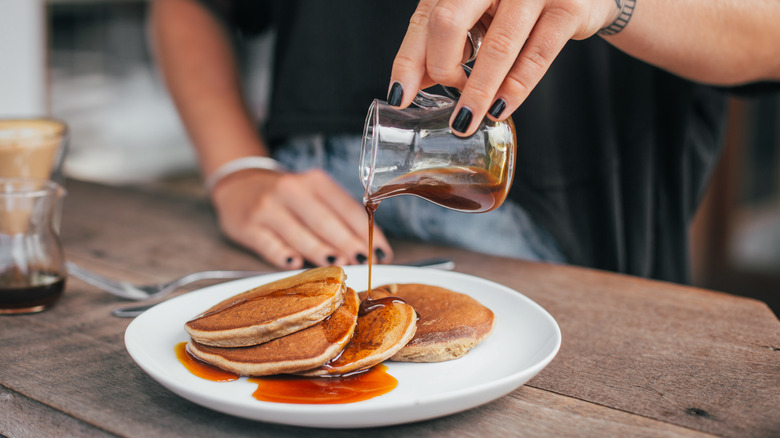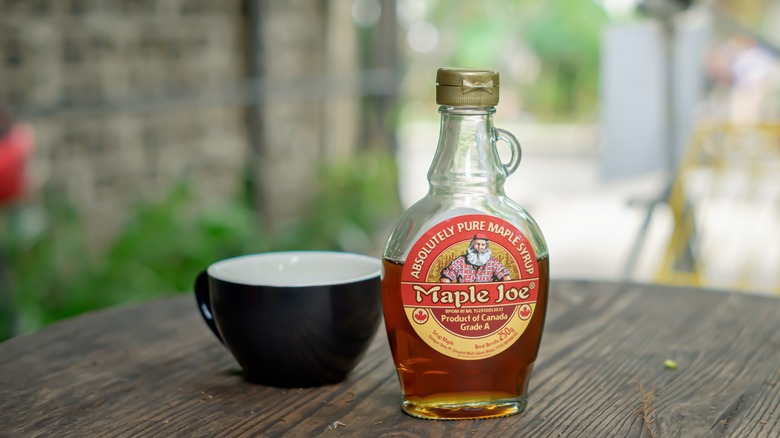Is Maple Syrup A Healthier Alternative To Sugar?
Maple syrup goes well with waffles, pancakes, banana bread, and other desserts, but you can also add it to savory dishes, such as baked beans and casseroles. Some people even use it as a sugar substitute in coffee, tea, or candied nuts.
Penn State University explains that this delicious treat comes from Acer saccharum, or hard maple, a tree that grows in Canada and some parts of the U.S. Producers extract sap from maple trees and boil it to obtain a concentrated liquid. After that, they filter it to remove impurities and then pour it into containers while still hot. The end product is about 66.9% sugar by weight and contains just as much calcium as whole milk, according to the U.S. Department of Agriculture (USDA). A teaspoon of pure maple syrup has only 50 calories and large doses of niacin, biotin, iron, phosphorus, manganese, and amino acids.
The USDA says that maple syrup is an organic product, meaning it doesn't contain additives, preservatives, or other chemicals. However, not all maple syrup is certified organic, explains Baird Farm. To get organic certification, producers must follow specific practices when tapping the trees, boiling the sap, and processing the syrup. For this reason and others, pure maple syrup comes with a higher price tag than sugar or even honey. But is it really that healthy? Let's find out.
Should you replace sugar with pure maple syrup?
Along with stevia and honey, maple syrup is one of the few natural sweeteners on the market. Its nutritional value depends on the brand, but you'll likely get about 220 calories and 54 grams of carbs — including 53 grams of sugar — per quarter cup, according to Maple From Canada. This sweet treat is also rich in coumarin, lignans, and other polyphenols, a class of antioxidants that may suppress inflammation and protect against cancer, suggests a 2014 review published in the Journal of Agricultural and Food Chemistry.
Pure maple syrup is about 52% to 76% sucrose, the primary carbohydrate in table sugar, but it also contains fructose and glucose (per Food Research International). Its glycemic index (GI) is around 54, whereas table sugar has a GI of 58, says Bascom Maple Farms. Therefore, maple syrup will still raise your blood sugar pretty quickly and may not be the best choice for those with diabetes.
The product is slightly healthier than table sugar, but its high sucrose content may negate any potential benefits. "It is confusing, but the easiest way to think about it is that maple syrup is sugar, so it counts toward your daily intake of added sugars, but it doesn't contain added sugars," nutritionist Amy Keating told Consumer Reports. Your best bet is to consume maple syrup in moderation. Don't think of it as a substitute for sugar, but rather as a sweet treat you can enjoy every now and then.


